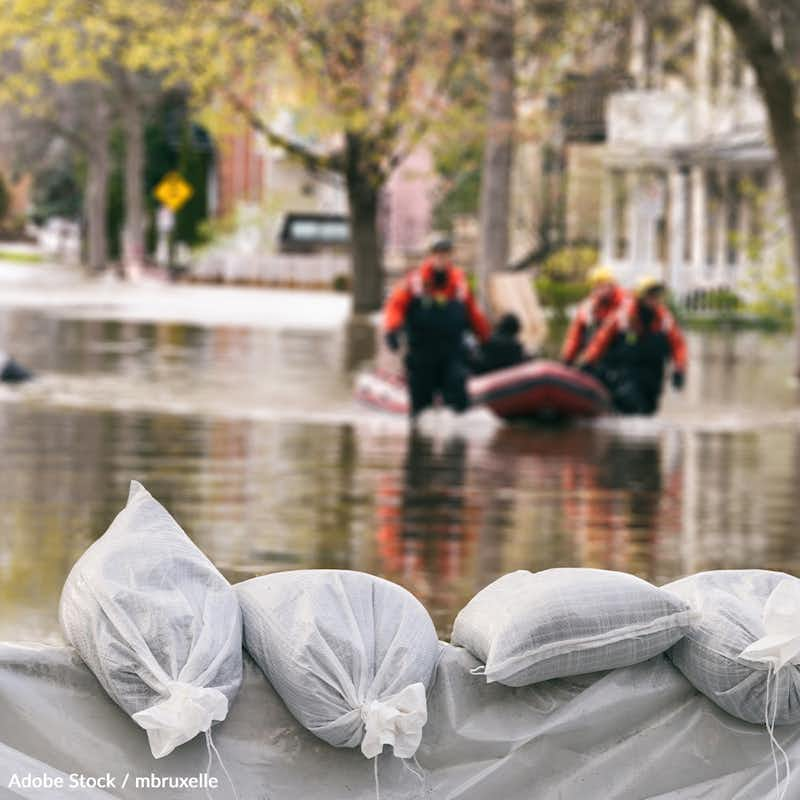Pledge To Help People and Pets During Disaster
10,330 signatures toward our 30,000 Goal
Sponsor: The Rainforest Site
In the aftermath of a natural disaster or violent weather event, entire communities can be displaced or destroyed. Pledge to respond where help is needed most!

When Hurricane Ian tore up the western coast of Florida as a Category 4 storm1, destructive winds of up to 155 miles per hour and torrential rain caused life threatening storm surges and massive amounts of flooding2.
The death toll for Florida was over 100 people3.
More than 42,000 workers responded to over 840,000 reported power outages during the disaster. These workers have restored power to millions of homes across the state, but many remained without power, dealing with severe water damage, and in need of help for weeks4.
In the aftermath of a natural disaster or violent weather event, entire communities can be displaced or destroyed. Whether from hurricanes in coastal states, violent tornados tearing through the inland U.S., or forest fires or earthquakes that are more prevalent out west5, there is usually an urgent need for humanitarian support following a natural disaster.
When the weather subsides, and the damage is done, reality sets it for those who have suffered through it. Survivors and those impacted first hand by these disasters need help.
We cannot let these needs go ignored.
From simple donations such as food and water, to medical and psychological care, and more, we can help rebuild and help others get back to their normal lives in the wake of adversity.
Sign the Disaster Relief Pledge and make a difference in your community when help is needed most!
- John Yang, Amna Nawaz, Lizz Bolaji, PBS News Hour (28 September 2022), "Hurricane Ian slams Florida’s west coast as Category 4 storm with 150 mph winds."
- National Environmental Satellite Data and Information Service, National Oceanic & Atmospheric Administration, Department Of Commerce (4 October 2022, "Hurricane Ian’s Path of Destruction."
- Meredith Deliso and Mary Kekatos, ABC News (12 October 2022), "Hurricane Ian death toll now more than 100 after storm slams into Florida, North Carolina."
- Red Cross Northland (6 August 2021), "8 effective ways to help disaster victims."
- Jon Links, Centers for Disease Control and Prevention (7 August 2017), "Predicting Community Resilience and Recovery After a Disaster."
The Pledge:
In the aftermath of a natural disaster, I pledge to acknowledge the humanitarian needs of people and pets in my community, and support those needs by:
5. Sending Funds or Crucial Supplies
The most effective way to help victims of a natural disaster or emergency is to donate to a disaster relief organization. With proper planning and such these organizations can then use the financial stimulus to help their efforts immediately and long term over the coming months and years of rebuilding. If you donate goods, first make sure that they are needed or part of a list of donatable items. Storing and sorting unnecessary or an overabundance of goods can be very costly and time consuming for relief efforts.
4. Volunteering to Help
There are many ways you can help volunteer for disaster relief and doing something that you are efficient in is the best way to help your community. For direct help in the most affected areas look into American Red Cross Disaster Training. For other ideas, think about helping communities in ways that deal with shelter, nutrition, and emotional support. Local nonprofits need all the help they can get in these situations and any assistance you can provide can go a long way in the rebuilding process.
3. Donating Blood
If you’re eligible and able, giving blood is one of the best ways to help save lives following a disaster. Hospitals have historically shown an increased demand for blood after disasters and due to the short shelf life, they can’t just stock up months ahead of time to alleviate the future demand. Contact the American Red Cross or local relief efforts to see if and where you can donate.
2. Fostering or adopting an animal
Helping foster an animal or adopting one into your home helps save two lives — the animal you are rescuing and another that the shelter now has room to care for. Make sure to notify your local adoption group that you can foster a pet — either one waiting for a home or one whose family has had to temporarily relocate.
1. Supporting Flights to Freedom
Greater Good Charities is already sending pet food, supplies, humanitarian aid, and planning emergency Flights to Freedom to move pets that were in shelters before the storm to make room for large numbers of incoming displaced pets. You can help pets and people reeling from catastrophic disasters. We are fielding an influx in requests from those affected and we are rushing aid. Every little bit helps right now, and your gift is 100% tax deductible. Donate today. Your donation will support Greater Good Charities’ disaster relief efforts and help provide relief to those affected by this storm.
Pledged by,